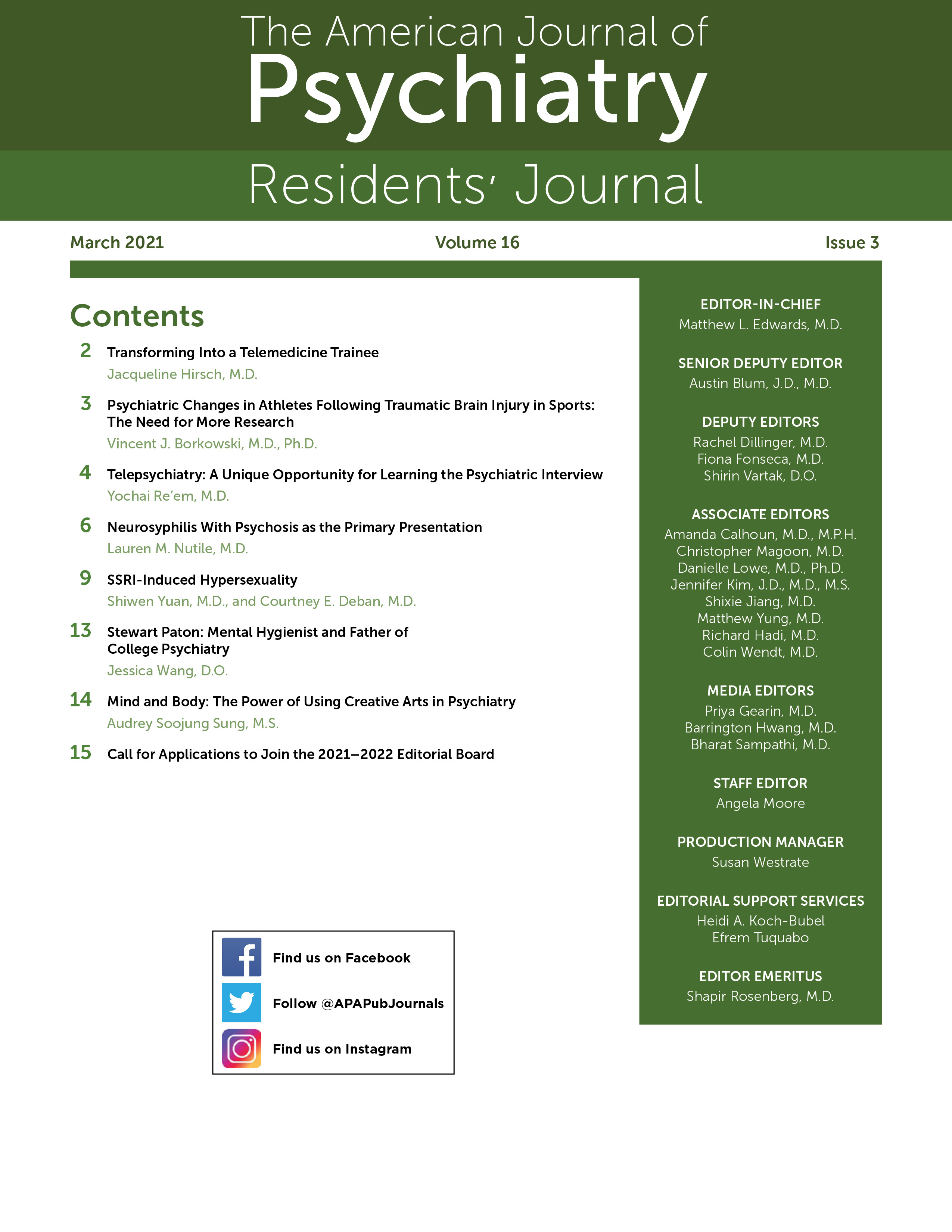Interest in college mental health has been growing among psychiatrists in recent years, likely related to increased media coverage of school shootings and teen suicides in the past few decades (
1). In 2004, the American Psychiatric Association formed an official task force on the treatment of college students. In 2017, the Association for College Psychiatry was created as a nonprofit organization and has organized three annual meetings and a mentorship program. As a fourth-year resident starting a longitudinal rotation in the counseling center on our university's undergraduate campus (albeit virtually due to COVID-19), I wondered how psychiatrists became involved in the area of college mental health in the first place. These origins can be traced back to 1910 when Stewart Paton established the first student mental health center at Princeton University.
Born in New York City in 1865, Paton completed his undergraduate studies at Princeton and his M.D. at Columbia University (
2). He did his postgraduate studies in Europe under the tutelage of prominent figures, such as Heinrich Obersteiner and Emil Kraepelin, and eventually settled down at his alma mater of Princeton after returning to the United States. He organized the first university mental health services after observing that students were leaving school before finishing their courses of study as a consequence of mood and personality disorders. He was ahead of his time, considering that the first student health services that were created at Amherst College in 1861 did not incorporate services for mental health (
3).
Demand for mental health services became apparent when Princeton students reportedly flocked to see Paton "by the dozens" (
4). A few years later, he served in World War I, and during his time in the Neuropsychiatry Division of American Expeditionary Forces Medical Corps, he served on a committee to study shell shock. From this experience, he theorized that collegiate students were not necessarily prepared to handle stressors other than war and could easily become vulnerable to many of the symptoms of shell shock that he saw in soldiers (
1). He argued that college campuses should promote resiliency in their student populations so that students would be better equipped to handle the daily stressors of life.
After the war, Paton worked at Columbia University with Thomas W. Salmon, another leader in the mental hygiene movement in the early 20th century, and helped found the national journal Mental Hygiene in 1917 (
2). When the American Student Health Association met for the first time in 1920, it stressed the importance of mental hygiene to maximize the potential of students during their college years. Over the next decade, more comprehensive mental health services emerged at other institutions of higher learning, including West Point (prompted by the deaths of two cadets from suicide), Yale, Dartmouth, and Vassar (
5).
Stewart Paton passed away in 1942 at the age of 76 from heart disease. Although terms such as "shell shock" and "mental hygiene" are now obsolete, his work set a precedent for other colleges and universities to follow. Nearly 50 years elapsed between the creation of the first student health services at Amherst College and the creation of Paton's mental health clinic, and it is clear that he served an important role as a professional advocate for students. The link he identified between the emotional distress exhibited by his students and by World War I soldiers seems even more relevant for today's youth, who have experienced 9/11, increased gun violence, civil unrest, financial recession, and now a pandemic. It is our duty to continue addressing these subsets of our patient population and the unique challenges they face.
